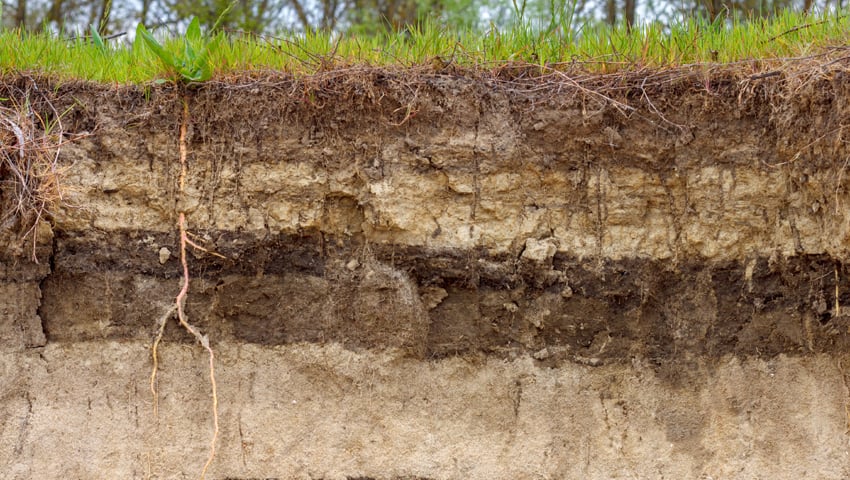A new strategic collaboration between Beyond Zero, the UK Carbon Code of Conduct and Nature Broking aims to help deliver integrity and certainty in the voluntary carbon market.
There are a number of barriers to confidence in the net zero and carbon markets, from the lack of standardisation, transparency, and regulatory uncertainty, to the quality of carbon credits and their integrity, including issues related to additionality, permanence, and leakage.
Overcoming these barriers will require not just concerted efforts from policymakers, businesses, and other stakeholders in the carbon market ecosystem, but collaboration across the ecosystem, and beyond.
Specific issues include the almost daily reporting of conflicting studies, as Forbes reports, “Some studies show efficacy, while others argue that, in many cases, the activities underlying the carbon credit’s value are dubious or faulty and, in some cases, lead to higher emissions. Criticisms also target carbon credit certifiers and the level of due diligence they apply.”
This issue spans the globe, with certain climate proponents, notably in the EU, advocating for stricter criterion suggesting that carbon credits ought to be granted solely for actions leading to authentic and permanent carbon removal. However, the question remains, “How can such actions be quantified and authenticated?”
The collaboration between Beyond Zero, the UK Carbon Code of Conduct and Nature Broking aims to address these issues by underwriting the veracity and integrity of carbon credits every step of the way.
Doug Wanstall, Head of Projects for Beyond Zero, spoke to 8.9 TV. He said, “The voluntary carbon market has been around for 25 years roughly. It’s fair to say it’s been finding its feet. It’s a market that hasn’t really known where the standard should lie. We’ve seen some projects globally where there hasn’t been sufficient oversight or transparency, traceability or credibility.”
The arrival of individual farmers into the carbon market is adding a new level of complexity, but also an opportunity. Wanstall said, “Because of the lack of integrity, corporations, small companies, large companies and individuals – there’s a flight to quality. A flight to investing in projects [that investors] can go and visit. They can look a farmer in the eye and see where their investment has gone.”
“Farmers should look at who the [carbon credit company] is partnered with – what does the supply chain look like – who are the end consumers of these credits. If they can be completely transparent and show that the project will issue credits over here and that the customer is x multinational or government over there – then you can be quite sure that the system is credible. If you’re never told where the customer is for the credit, I would stay clear.”
Beyond Zero’s founders acknowledge that whilst net zero is a necessary goal, it’s not sufficient on its own.
CEO, David Plummer, said, “We also need to focus on adaptation strategies and to ensure that the path to Net Zero is equitable and transparent, not least of which to avoid allowing high-emitting countries or corporations to offset their emissions by investing in carbon reduction projects in low-emitting countries, and the risk of greenwashing.
“It seems obvious to us that only when an entire landholding is net zero should carbon credits be issued, and only on the excess.”
As an environmental asset manager, Beyond Zero offers a range of services to help land managers maximise the value and impact of their decision making. This always starts by undertaking a full natural capital evaluation and creation of a baseline across the entire landholding. A customer and context specific project is then developed, which includes emissions reduction, carbon capture and biodiversity enhancement projects, and a long-term improvement plan, but often includes a lot more.
Beyond Zero’s robust and data-rich solutions also measure, report and verify carbon emissions, sequestration levels and biodiversity gains to unlock and monetise the value of natural capital at farm, landscape and national scales.
Wanstall said, “Once you’ve got to net zero, it’s relatively easy to stay there, unless of course you radically change your business. When you get to net zero, it becomes quite infectious; it becomes endemic within the organisation to continue reducing emissions and increasing carbon removals. We certify that net zero position, so that the farmer can take that to their supply chain and demonstrate that they are at zero and have an annual plan to remain there.”
The UK Carbon Code of Conduct (UKCCC) has long been advocating for integrity in the voluntary carbon market, establishing a stringent set of standards that take a holistic land management approach to drive investment. It only approves projects and nature-based solutions that contribute to the reversal of climate change and biodiversity collapse.
The UKCCC’s mission is to ensure that GHG Reduction and Removal (GRR+) credits are effectively measured, reported and verified and are therefore high-integrity, in order to give surety to credit buyers wishing to offset their own residual carbon dioxide equivalent (CO2e) emissions. Not only is there a requirement for permanence in any approved project, the code mandates additionality and the avoidance of both leakage and negative outcomes.
Luke Baldwin, CEO of Nature Broking, said, “The UK Carbon Code of Conduct credits developed in conjunction with Beyond Zero fit exactly with Nature Broking’s ethos which is why the three companies have joined forces to make a real difference. Buying UKCCC credits shows a business is serious about its sustainability agenda and can comfortably promote it using these high-integrity credits with no fear of accusations of greenwashing.”
Recent beneficiaries of this collaboration include Beech Estate in East Sussex (as project host) and Devon County Council (as credit purchaser).
